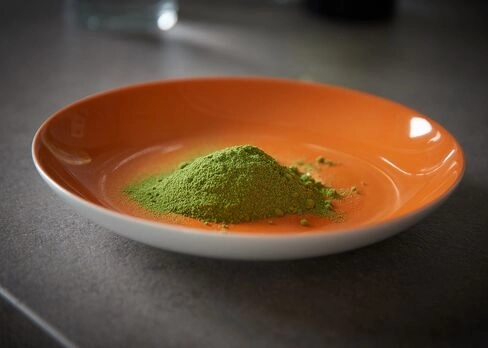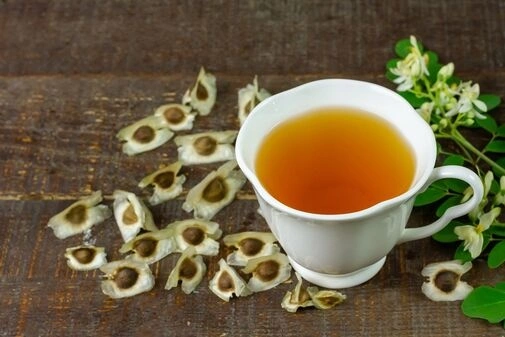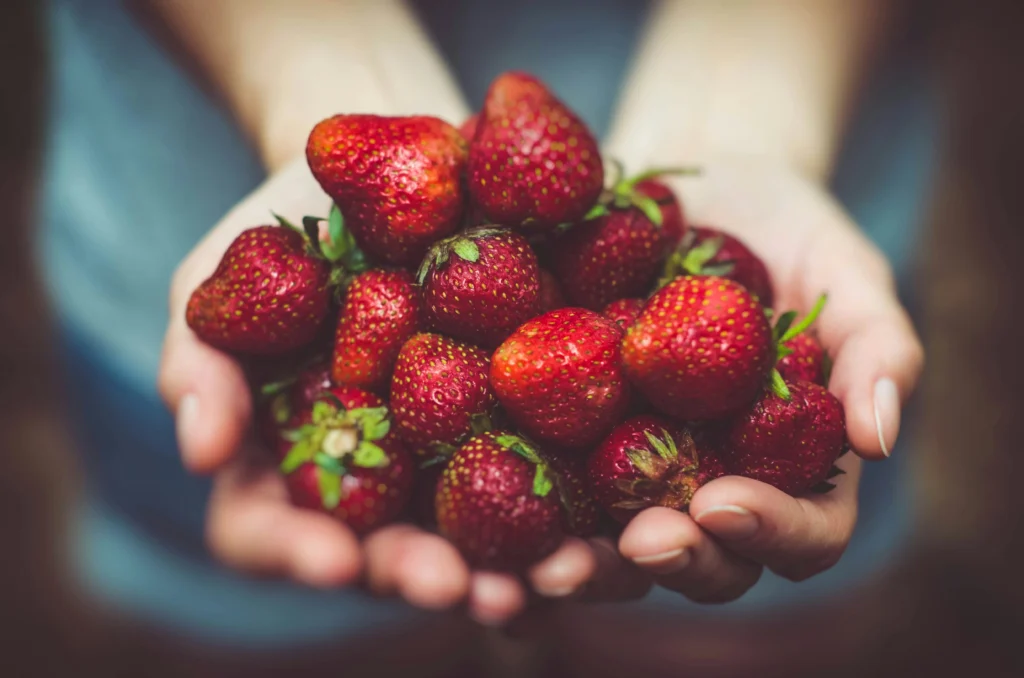Table of Contents
Moringa, often referred to as the “miracle tree,” has been celebrated for centuries for its outstanding health benefits and nutritional content. This article provides an in-depth exploration of moringa (Moringa oleifera), covering its health advantages, nutritional insights, culinary uses, recipes, potential side effects, and frequently asked questions.
Introduction to Moringa
Moringa oleifera, commonly known as moringa or drumstick, is a fast-growing tree native to the Indian subcontinent and the tropical regions of Asia, Africa, and South America. It has gained widespread recognition due to its nutrient-dense leaves, edible pods, and seeds. Moringa has been incorporated into traditional medicine and diet for centuries, celebrated for its remarkable health benefits and ease of cultivation.
Cultural Significance
In various cultures, moringa is known by different names. In India, it’s called “sahjana,” while in the Philippines, it’s referred to as “malunggay.” Its various parts—leaves, roots, and pods—are utilized in culinary dishes and medicinal practices. Many communities grow moringa not only for its nutritional value but also as a natural remedy for various ailments.
Moringa is known by various names in different regions of India. Here are some of them:
- Sahjana: North India, commonly used in Hindi.
- Murungai: Tamil Nadu.
- Sahjan: Bihar and parts of Eastern India.
- Munga: Punjabi.
- Nugge: Karnataka, often used in Kannada.
- Moringa: Widely recognized name across many states.
- These regional names reflect the plant’s widespread use and cultural significance throughout the country.
Nutritional Information
Moringa leaves are described as a superfood due to their high nutrient profile. Here is a detailed breakdown of the nutritional content per 100 grams of fresh moringa leaves:
- Calories: 64
- Protein: 9.4 g
- Fat: 1.4 g
- Carbohydrates: 8.2 g
- Fiber: 2 g
- Vitamins:
- Vitamin A: 18,000 IU (provides vision and immune function)
- Vitamin C: 51 mg (boosts immunity and skin health)
- Vitamin E: 2.0 mg (antioxidant support)
- Vitamin K: 422 µg (essential for blood clotting)
- Vitamin B Complex: Which includes B1 (thiamine), B2 (riboflavin), B3 (niacin), B5 (pantothenic acid), B6 (pyridoxine), and B9 (folate)
- Minerals:
- Calcium: 185 mg (bone health)
- Iron: 4.0 mg (supports oxygen transport)
- Magnesium: 147 mg (muscle and nerve function)
- Potassium: 337 mg (blood pressure regulation)
- Phosphorus: 57 mg (cellular function)
- Zinc: 0.6 mg (immune function)
This nutritional density allows moringa to serve as an essential dietary component, especially in regions where food security is a concern.
Health Benefits of Moringa
1. Rich in Vitamins and Minerals
Moringa leaves are a powerhouse of vitamins and minerals. They provide an excellent source of nutrients, helping to prevent deficiencies and support overall health. This makes moringa particularly beneficial in areas where dietary variety may be limited.
2. Antioxidant Properties
Moringa contains a variety of antioxidants, such as quercetin, chlorogenic acid, and beta-carotene. These compounds combat oxidative stress in the body, protecting cells from damage caused by free radicals. Regular consumption of antioxidant-rich foods is linked to a lower risk of chronic diseases.
3. Anti-Inflammatory Effects
Moringa is rich in anti-inflammatory compounds, particularly isothiocyanates, which help reduce inflammation in the body. Lowering inflammation can alleviate symptoms of chronic conditions like arthritis and promote overall well-being.
4. Blood Sugar Regulation
Research suggests that moringa may help lower blood sugar levels, making it potentially beneficial for managing diabetes. Compounds in moringa, such as chlorogenic acid, are believed to play a role in regulating glucose levels.
5. Cholesterol Management
Moringa has been shown to reduce LDL (bad) cholesterol levels while raising HDL (good) cholesterol. This balance can lead to improved heart health and a reduced risk of heart disease.
6. Supports Brain Health
Moringa contains compounds that support neuroprotection and cognitive function. Its high antioxidant content can potentially prevent oxidative stress in the brain, contributing to better mental health and memory.
7. Enhances Skin and Hair Health
The vitamins and minerals found in moringa promote healthy skin and hair. Its antioxidant properties can help combat signs of aging, while its nourishing elements can moisturize and strengthen hair.
Uses of Moringa

A. Culinary Uses
Moringa is incredibly versatile in the kitchen. Its leaves can be consumed fresh in salads, steamed, or used in soups and curries. The pods, known as drumsticks, are often cooked in savory dishes. Dried moringa powder can be added to smoothies, baked goods, and sauces for an extra nutrient boost.
B. Medicinal Uses
In traditional medicine, moringa has been utilized to alleviate various health issues, such as high blood pressure, respiratory problems, and digestive disorders. Herbal teas made from moringa leaves are popular for their soothing properties.
C. Cosmetic Applications
Moringa oil, extracted from its seeds, is rich in nutrients and has hydrating properties. It is commonly found in skincare and haircare products, promoting smooth skin and healthy hair.
Moringa Recipes
1. Moringa Smoothie
Ingredients:
- 1 ripe banana
- 1 cup fresh spinach
- 1 tablespoon moringa powder
- 1 cup almond milk
- Honey or maple syrup (to taste)
- Instructions:
- Place all ingredients in a blender.
- Blend until smooth.
- Enjoy chilled for a nutritious breakfast or snack.
2. Moringa Soup

Ingredients:
- 1 cup fresh moringa leaves
- 1 medium onion, chopped
- 2 garlic cloves, minced
- 4 cups of vegetable broth
- Salt and pepper to taste
- Instructions:
- In a pot, heat a little oil and sauté the onion and garlic until translucent.
- Add all the vegetable broth and bring it to a boil.
- Stir in the moringa leaves and simmer for about 10 minutes.
- Blend the soup until smooth, season to taste, and serve hot.
3. Moringa Pancakes
Ingredients:
- 1 cup whole wheat flour
- 2 tablespoons moringa powder
- 1 tablespoon baking powder
- 1 cup milk (or plant-based milk)
- Honey or sugar (to taste)
- Instructions:
- In a bowl, mix flour, moringa powder, and baking powder.
- Combine the wet and dry ingredients together and mix it lightly, do not overmix.
- Cook pancakes on a heated griddle until bubbles form, then flip and cook until golden brown.
Safety and Side Effects
While moringa is safe for most people when consumed in moderation, it may cause side effects in certain individuals, especially when taken in excess. Some potential side effects include:
- Gastrointestinal Issues: High doses may lead to nausea, diarrhea, or stomach upset.
- Blood Pressure Effects: Moringa may lower blood pressure; individuals on blood pressure medications should consult their doctor.
- Pregnancy Concerns: Pregnant women should avoid moringa root and its extracts, as they may have uterine stimulant properties that could lead to complications.
Always consult a healthcare professional before incorporating moringa or any new supplement into your diet, especially if you have existing health conditions or are on medication.
Frequently Asked Questions
Q1: How can I consume moringa safely?
Moringa can be consumed in various forms, including fresh leaves, dried powder, capsules, or as an ingredient in foods and beverages. Begin with small amounts to evaluate how your body responds.
Q2: Can children eat moringa?
Moringa is generally safe for children when consumed in moderation. It’s a nutritious addition to their diet, but consult a pediatrician for specific advice.
Q3: Is moringa beneficial for weight loss?
Moringa may aid weight loss efforts due to its low calorie yet high nutrient density, which can help manage hunger while providing essential nutrients.
Q4: How should moringa be stored?
Store moringa as powder in a cool, dry place, and keep it away from direct sunlight. Fresh leaves can be refrigerated to maintain their freshness.
Q5: Can moringa help with diabetes?
Moringa may help regulate blood sugar levels, making it a beneficial addition to the diet of those with diabetes. However, it’s essential to monitor blood sugar levels closely.
Moringa (drumstick) is truly a nutritional powerhouse with numerous health benefits. Incorporating this incredible superfood into your diet can enhance your well-being, support healthy living, and provide delicious options for meals and snacks.
Disclaimer:
This article is meant for informational purposes only and should not be viewed as medical advice. Always consult a healthcare professional before making significant changes to your diet or health regimen, especially if you have existing medical conditions or are pregnant or breastfeeding.



